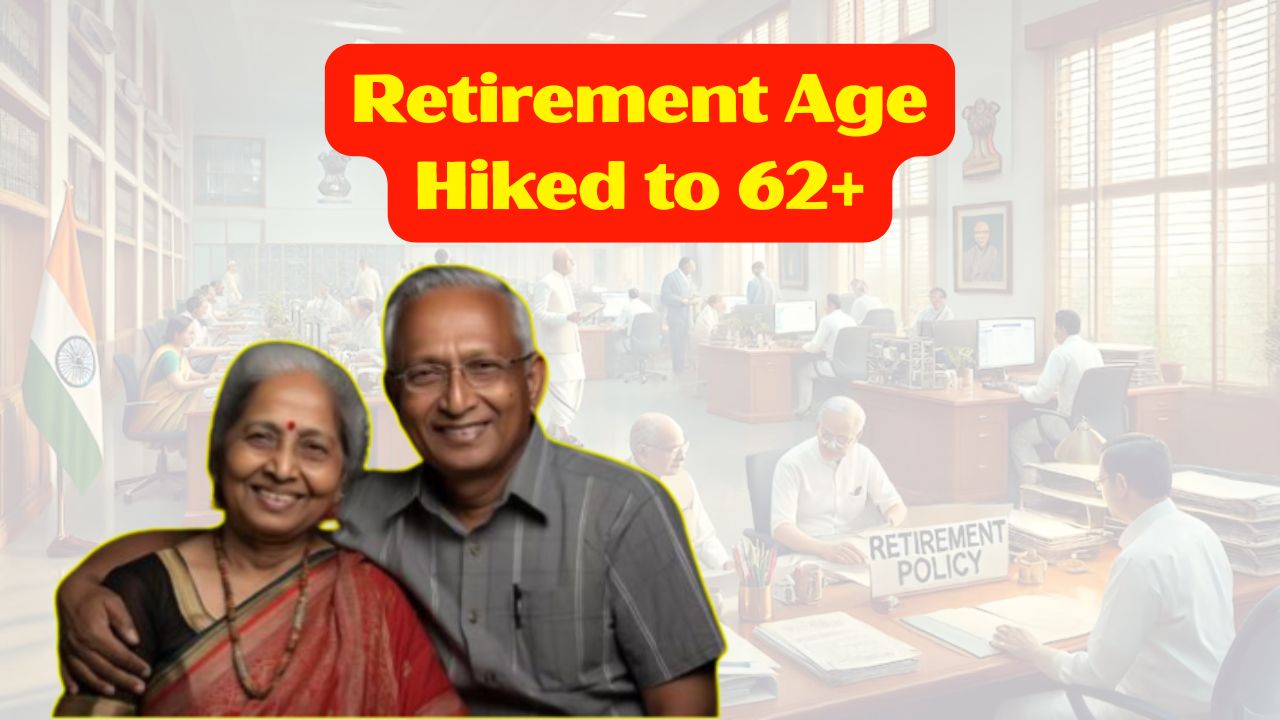In a significant development that has caught many by surprise, the central government is reportedly considering a new policy to raise the retirement age of government employees from the current 60 to 62 years or beyond. This move, still awaiting formal notification, is being discussed at the highest levels and could soon become a reality. If implemented, it would impact millions of public sector employees, particularly those nearing the end of their service.
This decision is said to be part of a broader administrative reform aimed at maximizing the experience and productivity of senior personnel while addressing the shortage of skilled leadership in various departments.
Why the Government Is Considering Raising the Retirement Age
India’s public sector workforce is aging, but it is also more experienced than ever before. Many top-level government officials, doctors, engineers, and technical experts accumulate invaluable institutional knowledge over decades of service. By allowing them to work for an additional two years, the government seeks to retain this talent pool during a time when administrative efficiency and leadership continuity are more important than ever.
In addition to improving governance, this measure may also help address the staffing crunch in several central departments and autonomous bodies where recruitment processes have been slower post-pandemic.
How the New Policy May Be Rolled Out
While no official gazette has been released yet, insiders suggest that the policy may be introduced in phases. Initially, it could apply to select categories of employees in ministries where staffing shortages are most severe. Subsequently, it could be extended across central government services and even set a precedent for state governments to follow.
This incremental approach would allow departments to adjust budgets and staffing plans while ensuring a smoother transition. It’s also being debated whether this extension would be optional or mandatory for all eligible employees.
Economic and Pension Implications
A delay in the retirement age would directly affect the pension payout cycle, as employees would remain on the payroll for an additional two years. This could help the government defer some immediate pension liabilities while giving employees more time to contribute to their retirement corpus.
However, it may also impact the career progression of junior employees, as promotions could be delayed due to the extension of tenure at the top. Critics argue that the government must balance experience retention with career advancement for younger personnel to avoid stagnation and frustration within the ranks.
Public Reaction and Political Context
The news has sparked mixed reactions among government employees. While many nearing retirement have welcomed the possibility of continued service and income stability, others have expressed concerns over the impact on job opportunities for younger aspirants in the public sector.
From a political standpoint, the move may be seen as a populist measure ahead of upcoming elections, especially if it appeals to older voters and their families. However, it could also spark protests from unemployed youth or those preparing for government exams who fear reduced vacancies.
What This Means for Government Job Aspirants and Employees
If the new retirement age is officially implemented, current government employees aged between 58 and 60 will be directly affected. They may need to adjust their retirement plans, investments, and long-term financial strategies. Meanwhile, aspiring candidates preparing for government jobs must be prepared for potential delays in openings or revised age eligibility norms.
The government is expected to clarify these aspects in the coming weeks with a detailed circular outlining who qualifies, which departments are covered, and how the policy will be enforced.




